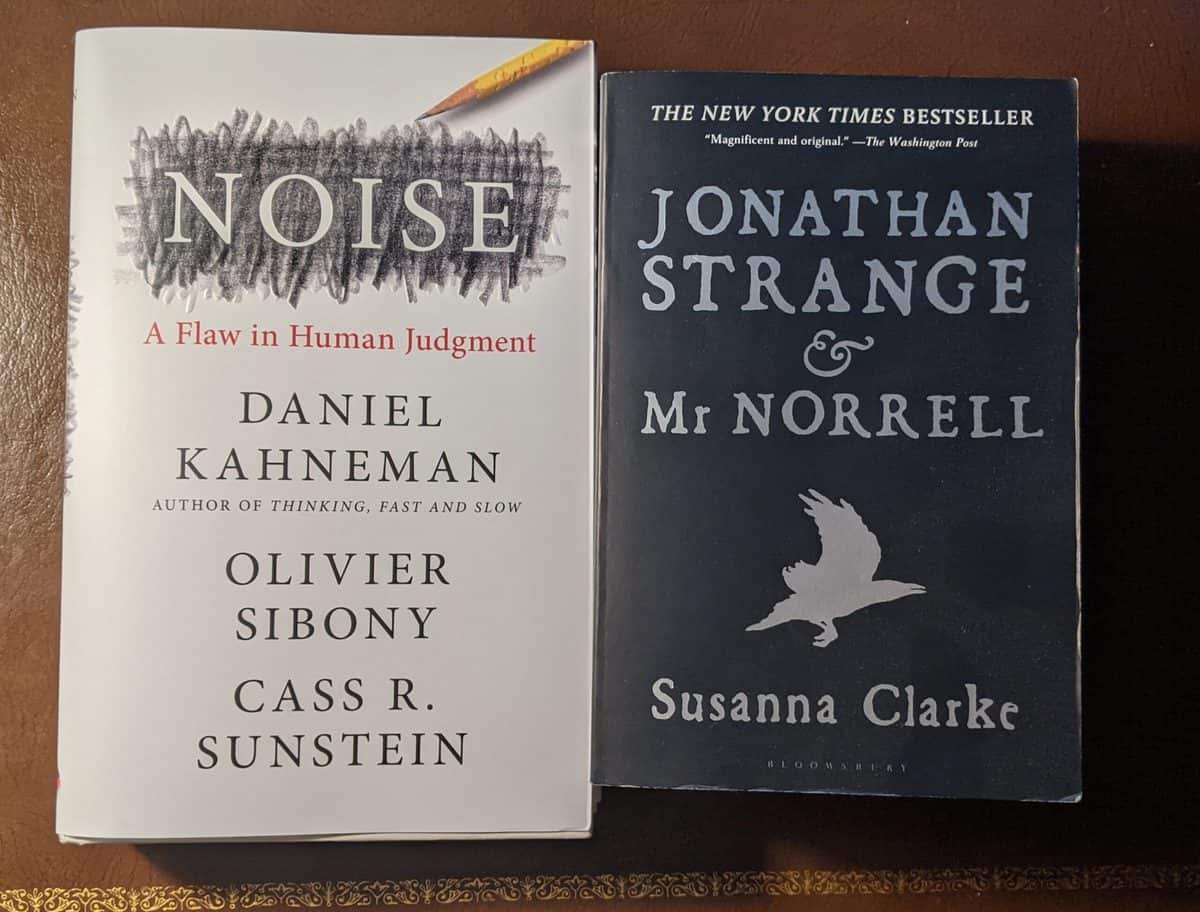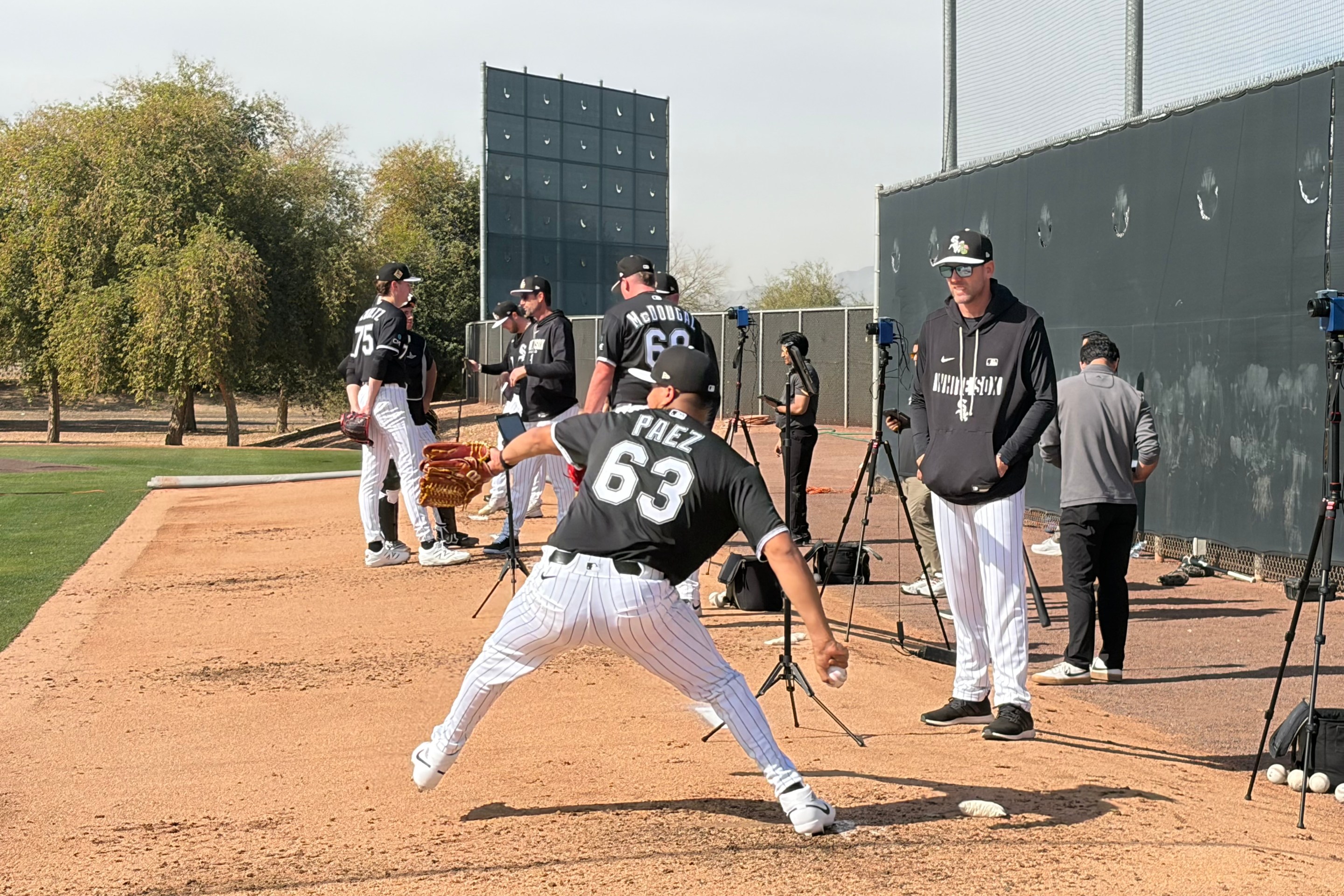Ten years after the 2011 publication of Daniel Kahneman's Thinking, Fast and Slow, the New York Times' Joe Lemire wrote about how it's worked its way into just about every MLB front office.
Which makes sense. I picked up Thinking, Fast and Slow because Larry wrote a post on South Side Sox about its application to baseball back in December 2013, and while it's broadly applicable to snap judgments and more deliberate forms of decision-making, it indeed applies to an unusual amount of baseball discussions, thanks to the sport's blend of observational reactions and economic concerns. Keith Law wrote an entire book about it, and we had a book club discussion about it.
Seeing the impact of Thinking, Fast and Slow on my rapid and deliberate reactions, I ordered his follow-up book Noise: A Flaw in Human Judgment, which he coauthored with Olivier Sibony and Cass R. Sunstein.
(Disclaimer: Links to books are Bookshop.org affiliate links; Sox Machine receives a portion of the proceeds, as do independent bookstores.)
There are similarities to Thinking, as one might expect. It can be dense and require close reading in order to keep the specific forms of noise separate. I had to put the book down on a plane because I kept getting clipped on the shoulder by flight attendants and the guy doing khaki calisthenics in the aisle. The latter third of the book is also guided more towards leaders of organizations, which I didn't find particularly relevant and slowed my completion of the book, but might hold more use for managers who are interested in conducting noise audits.
That said, there are individual benefits to zeroing in on noise, which the authors define as "unwanted variability in judgments." While a GM might only get one shot at solving right field for a season, you can reduce some of that "unwanted variability" by pretending that it's one of a series of similar decisions (and when it comes to the White Sox and right fielders, it very much is). Likewise, if you can't get an outside, impartial second opinion on what you hope your favorite team accomplished, you can clarify your own thinking by coming up with the most different yet plausible outcome, which might nullify skewed thinking from moods or hope.
The Offseason Plan Project came to mind multiple times. It turns out I've been trying to diminish noise when I've urged the community to avoid knocking a contributor for a plan that isn't cohesive or possible, because there might be one idea or fresh name worth considering.
However, if I were to truly prioritize the elimination of noise, I wouldn't allow the architects to see any prior entries. As Kahneman, Sibony and Sunstein write:
Aggregating judgments can be an excellent way of reducing noise, and therefore error. But what happens if people are listening to one another? You might well think that their doing so is likely to help. After all, people can learn from one another and thus figure out what is right. Under favorable circumstance, in which people share what they know, deliberating groups can indeed do well. But independence is a prerequisite for wisdom of the crowds. If people are not making their own judgments and are relying instead on what other people think, crowds might not be so wise at all.
It'd be fascinating to release 100-plus plans at once to see how it affects the amount of variance and creativity of the plans. Given how wrong any of us can be, it probably makes sense to try minimizing the effect of what one well-respected member of the Sox Machine community's plan might have on others who are relying on their judgment. However, there's also collaborative value in building off an idea you like. Also, that would undermine another purpose of the Offseason Plan Project, which is that it gives me a week or so to recharge my batteries. Tough noogies, noise hygiene.
If you had to read one Kahneman book or another, I'd go with Thinking, Fast and Slow 10 times out of 10. But if you loved that book and you're responsible for the decisions and judgments of an organization, consider Noise a decision-science booster shot. If you might not get that kind of use out of it, borrowing it might be a better route.
* * * * * * * * *
I was in a bit of a reading slump over the first half of 2021, knocking out a novel and a memoir I thought were merely OK, and starting and stopping a biography of Thomas Edison that was a little too dry.
Back when Keith Law joined us on the Sox Machine Podcast, he cited Susanna Clarke's Mr. Norrell and Jonathan Strange as one of his favorite novels when recommending her newer, shorter book, Piranesi. In the comments on the podcast, John in SF echoed the sentiments for Mr. Norrell. When I went to Parnassus Books, the bookseller urged me to go with Mr. Norrell if I could put my mind to it.
So I did.
The paperback version of Mr. Norrell and Jonathan Strange I purchased is 846 pages, which has to be the longest work of fiction I've ever read. It exercised a different part of my brain. I've read longer works of nonfiction, but when you're 200 pages in about a president or a historical event, you generally know the chronology that's left to be covered over the final 600. When you've read 200 pages of a novel, the second character in the title has yet to be fleshed out, and there are still three-quarters of the story to go, it requires a little more trust in the author.
A story about rival magicians in 19th-century England isn't quite in my wheelhouse, and so there were a few things that tested my patience. By design, Mr. Norrell is the far less compelling of the two magicians in the title. It makes sense that he appears first and establishes the status quo, but you also have to hang with it, hoping the story gets more exciting. Also, a lot of the quotes are "exclaimed" or "cried," which is a little grating in the way my mind processes dialogue.
But once I got to the second of third volumes, the story finally generated a momentum that overpowered my initial skepticism. It reminded me of Michael Chabon's The Amazing Adventures of Kavalier and Clay, which impressed me for its imagination and world-building. Clarke goes even further, with entire blocks of asides in footnotes I largely opted out of, mostly because I didn't think getting further in the weeds was the smart move when I wasn't convinced I would finish it.
It turns out I had no problem completing it. When you get four recommendations in three different contexts, I suppose it'd be surprising if they all were wrong.
View Sox Machine's Bookshop.org page for more recommended reads.






